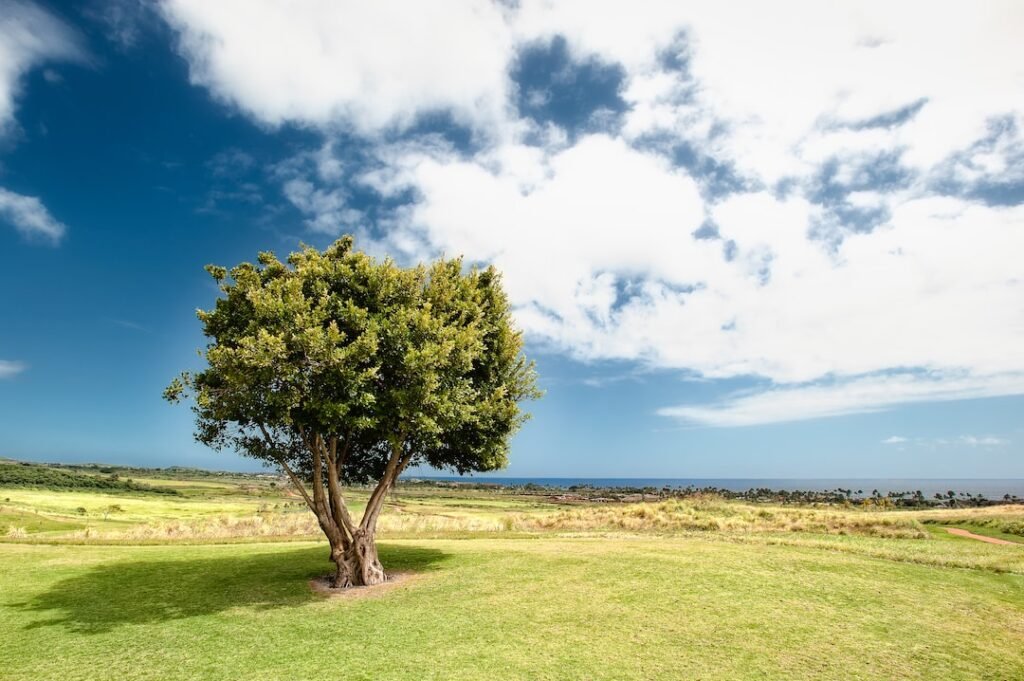When embarking on outdoor adventures in China, whether it be hiking through lush mountains, camping under the stars, or exploring the diverse wildlife, having a basic understanding of Chinese vocabulary can greatly enhance your experience. Not only does it allow you to communicate with locals and navigate your surroundings more effectively, but it also enables you to appreciate the natural beauty and cultural richness of the country on a deeper level. In this article, we will explore various categories of Chinese vocabulary that are essential for outdoor adventures, including nature-related terms, wildlife observation, rock climbing and mountaineering, water sports and activities, birdwatching and bird identification, forest and plant identification, weather and climate, navigation and map reading.
Table of Contents
ToggleKey Takeaways
- Chinese vocabulary is essential for outdoor adventures in China
- Basic nature-related vocabulary is important for hiking and camping
- Essential vocabulary for wildlife observation is necessary for safety and enjoyment
- Vocabulary for rock climbing and mountaineering is crucial for safety and success
- Knowing Chinese vocabulary for water sports and activities is important for safety and communication
Basic Nature-Related Chinese Vocabulary for Hiking and Camping
When hiking or camping in China, it is important to have a basic understanding of nature-related Chinese vocabulary. This includes words and phrases such as mountain (山, shān), forest (森林, sēnlín), river (河流, héliú), lake (湖泊, húpō), trail (小径, xiǎojìng), campsite (露营地, lùyíngdì), tent (帐篷, zhàngpéng), and backpack (背包, bēibāo). These words can be used to ask for directions or describe your surroundings when communicating with locals.
For example, if you are hiking and come across a local villager, you can ask them “请问,这条小径通往山顶吗?” (Excuse me, does this trail lead to the mountaintop?). If you are setting up camp and need to find a suitable spot, you can ask a local “附近有没有露营地?” (Is there a campsite nearby?). By using these basic nature-related Chinese vocabulary, you can enhance your outdoor experience and interact with locals more effectively.
Essential Chinese Vocabulary for Wildlife Observation
China is home to a diverse range of wildlife, from giant pandas to rare bird species. To fully appreciate and identify the wildlife you encounter during your outdoor adventures, it is helpful to have a basic understanding of Chinese vocabulary related to wildlife observation. Some common words and phrases include animal (动物, dòngwù), bird (鸟, niǎo), butterfly (蝴蝶, húdié), insect (昆虫, kūnchóng), and endangered species (濒危物种, bīnwēi wùzhǒng).
When communicating with locals about wildlife, you can ask questions such as “这附近有没有野生动物?” (Are there any wild animals around here?) or “你知道这种鸟是什么品种吗?” (Do you know what species this bird is?). By using these words and phrases, you can engage in meaningful conversations with locals and gain a deeper understanding of the wildlife in the area.
Chinese Vocabulary for Rock Climbing and Mountaineering
| Term | Definition | Example |
|---|---|---|
| Belay | A technique used to control the rope and protect the climber in case of a fall. | “I’ll belay you while you climb.” |
| Crampons | Metal spikes attached to boots for traction on ice and snow. | “I need to put on my crampons before we start the ascent.” |
| Carabiner | A metal loop with a spring-loaded gate used to connect ropes and equipment. | “I’ll clip the carabiner to the anchor.” |
| Chimney | A narrow gap between two rock faces that a climber can squeeze through. | “We need to climb up the chimney to reach the summit.” |
| Crag | A small or large outcropping of rock used for climbing. | “Let’s head to the crag for some bouldering.” |
| Crux | The most difficult part of a climb. | “I struggled to get past the crux, but eventually made it.” |
| Dynamic Rope | A rope that stretches to absorb the impact of a fall. | “I prefer to use a dynamic rope for lead climbing.” |
| Edging | A technique used to place the edge of the foot on a small hold for balance. | “I’m edging my way up the face.” |
| Free Climbing | Climbing without the use of aid or equipment to assist in upward progress. | “I’m attempting to free climb this route.” |
| Gri Gri | A belay device that uses a camming mechanism to assist in rope control. | “I’ll use my Gri Gri to belay you.” |
For those who enjoy the thrill of rock climbing and mountaineering, having a solid grasp of Chinese vocabulary related to these activities is essential. Some common words and phrases include rock climbing (攀岩, pānyán), mountain peak (山峰, shānfēng), harness (安全带, ānquándài), carabiner (卡拉比纳, kǎlābǐnà), and belay device (保护器, bǎohùqì).
When communicating with fellow climbers or guides, you can use these words and phrases to discuss routes, equipment, and safety measures. For example, you can ask a fellow climber “你觉得这条攀岩路线怎么样?” (What do you think of this rock climbing route?) or tell your guide “请帮我检查一下我的安全带” (Please check my harness for me). By using these words and phrases, you can ensure a safe and enjoyable rock climbing or mountaineering experience in China.
Chinese Vocabulary for Water Sports and Activities
China’s vast coastline and numerous lakes and rivers make it a great destination for water sports and activities. Whether you enjoy swimming, kayaking, or surfing, having a basic understanding of Chinese vocabulary related to water sports can greatly enhance your experience. Some common words and phrases include swimming (游泳, yóuyǒng), kayaking (皮划艇, píhuátǐng), surfing (冲浪, chōnglàng), beach (海滩, hǎitān), and life jacket (救生衣, jiùshēngyī).
When communicating with locals about water sports, you can ask questions such as “这附近有没有适合冲浪的海滩?” (Are there any good surfing beaches nearby?) or “你知道哪里可以租皮划艇吗?” (Do you know where I can rent a kayak?). By using these words and phrases, you can navigate water environments more effectively and engage in water sports with confidence.
Chinese Vocabulary for Birdwatching and Bird Identification

China is a paradise for birdwatchers, with over 1,300 bird species recorded in the country. To fully appreciate and identify the birds you encounter during your outdoor adventures, it is helpful to have a basic understanding of Chinese vocabulary related to birdwatching and bird identification. Some common words and phrases include birdwatching (观鸟, guānniǎo), binoculars (望远镜, wàngyuǎnjìng), bird species (鸟类, niǎolèi), and bird migration (鸟类迁徙, niǎolèi qiānxǐ).
When communicating with fellow birdwatchers or locals, you can use these words and phrases to discuss bird behavior, habitats, and identification. For example, you can ask a fellow birdwatcher “你看到那只鸟了吗?” (Did you see that bird?) or tell a local “我在观察这种鸟的迁徙路线” (I am studying the migration route of this bird). By using these words and phrases, you can engage in meaningful conversations with fellow birdwatchers and locals and deepen your understanding of China’s avian diversity.
Chinese Vocabulary for Forest and Plant Identification
China is home to a rich variety of forests and plants, from towering bamboo forests to ancient cypress trees. To fully appreciate and identify the flora you encounter during your outdoor adventures, it is helpful to have a basic understanding of Chinese vocabulary related to forest and plant identification. Some common words and phrases include tree (树, shù), flower (花, huā), bamboo (竹子, zhúzi), forest (森林, sēnlín), and plant species (植物物种, zhíwù wùzhǒng).
When communicating with locals or fellow nature enthusiasts, you can use these words and phrases to discuss plant characteristics, habitats, and uses. For example, you can ask a local “这种树是什么品种?” (What species is this tree?) or tell a fellow hiker “我在寻找一种特殊的花” (I am searching for a specific flower). By using these words and phrases, you can identify plants more accurately and engage in meaningful conversations about China’s diverse flora.
Chinese Vocabulary for Weather and Climate
Weather and climate play a crucial role in outdoor adventures, influencing everything from hiking conditions to wildlife behavior. To effectively plan and navigate your outdoor activities, it is important to have a basic understanding of Chinese vocabulary related to weather and climate. Some common words and phrases include sunny (晴朗, qínglǎng), cloudy (多云, duōyún), rainy (下雨, xiàyǔ), windy (有风, yǒufēng), temperature (温度, wēndù), and forecast (天气预报, tiānqì yùbào).
When communicating with locals or checking weather forecasts, you can use these words and phrases to discuss current conditions and make informed decisions about your outdoor activities. For example, you can ask a local “今天会下雨吗?” (Will it rain today?) or check the weather forecast online by searching for “天气预报” followed by the name of the city or region you are in. By using these words and phrases, you can stay prepared and adapt your plans accordingly based on the weather conditions.
Chinese Vocabulary for Navigation and Map Reading
When exploring unfamiliar outdoor environments in China, having a basic understanding of Chinese vocabulary related to navigation and map reading is essential. This includes words and phrases such as map (地图, dìtú), compass (指南针, zhǐnánzhēn), direction (方向, fāngxiàng), landmark (地标, dìbiāo), and trail marker (路标, lùbiāo).
When communicating with locals or using maps and navigation tools, you can use these words and phrases to ask for directions or discuss your route. For example, you can ask a local “请问,这条路通往哪里?” (Excuse me, where does this road lead to?) or tell a fellow hiker “我们需要找到这个地标才能找到正确的小径” (We need to find this landmark in order to find the correct trail). By using these words and phrases, you can navigate outdoor environments more effectively and communicate with locals for assistance if needed.
Mastering Chinese Vocabulary for Outdoor Adventures
In conclusion, learning Chinese vocabulary for outdoor adventures in China can greatly enhance your experience. By having a basic understanding of nature-related terms, wildlife observation, rock climbing and mountaineering, water sports and activities, birdwatching and bird identification, forest and plant identification, weather and climate, navigation and map reading, you can communicate with locals more effectively, navigate your surroundings with confidence, and gain a deeper appreciation for the natural beauty and cultural richness of the country. So keep learning and practicing Chinese vocabulary for enhanced outdoor experiences in China!








